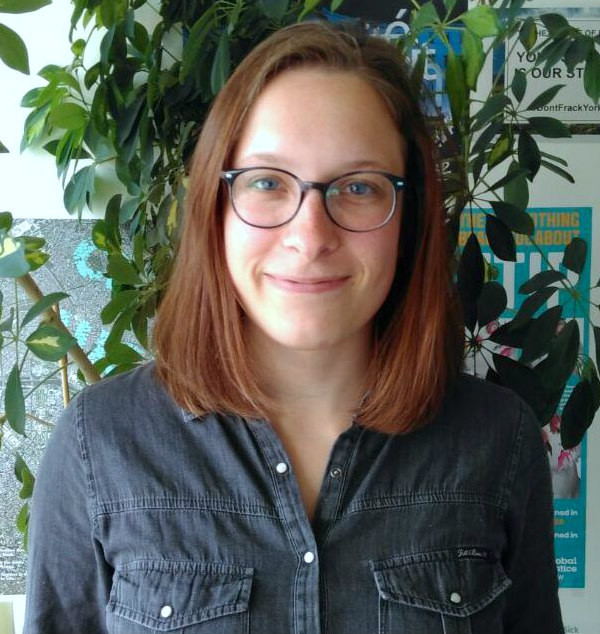By Tina Callebaut
 I recently started an internship of six months at Food & Water Europe and I am the newest addition to the small international Brussels-based team. During my first week I got to know the team a little better, I was given a tour around the ecologically renovated office building Mundo-B (which we share with 60 other NGOs) and I was introduced to the many issues Food & Water Europe is working and campaigning on. There was (and still is) a lot of information to take in, not to mention the many acronyms involved: PCI’s, RES, CEF, SGC, TAP, ECI, etc.… But I can only be very grateful for the warm welcome I’ve received in this small Spanish-Austrian-German working family.
I recently started an internship of six months at Food & Water Europe and I am the newest addition to the small international Brussels-based team. During my first week I got to know the team a little better, I was given a tour around the ecologically renovated office building Mundo-B (which we share with 60 other NGOs) and I was introduced to the many issues Food & Water Europe is working and campaigning on. There was (and still is) a lot of information to take in, not to mention the many acronyms involved: PCI’s, RES, CEF, SGC, TAP, ECI, etc.… But I can only be very grateful for the warm welcome I’ve received in this small Spanish-Austrian-German working family.
How did I end up at Food & Water Europe? I have always been very passionate about the environment and politics. I am especially interested in how we can urge politicians to employ effective regulatory provisions and policies promoting sustainable development and governing environmental protection. This is the reason I decided to study law, with a focus on environmental law, at the University of Ghent (Belgium), my hometown. In my master thesis I assessed regulatory frameworks and policy initiatives for the extraction of shale gas and analyzed the way the process is governed in the European Union and four of its Member States (Belgium, UK, France and The Netherlands). Before coming to Food and Water Europe I briefly worked in a law office, but working for an environmental organization and campaigning against climate change had always been on the top of my list. So when I saw the opportunity, I didn’t need a lot of time to think about it.
During my time at Food & Water Europe I will be working – among other things – on a hydrocarbons toolkit, a legal toolkit for activists who want to fight gas or oil extraction projects. The toolkit will list all of the European environmental and other regulations local governments and project promoters will have to comply with before and during their projects. The toolkit will allow local activists to quickly assess whether any European regulations have been violated during the permitting process or during the extraction stage of the project, and which procedural steps they can take to fight it. I will be working on this toolkit together with The Good Lobby, an organization that partners up volunteer experts with NGO’s. The toolkit will be ready soon. Stay tuned!


